If being straight were taboo
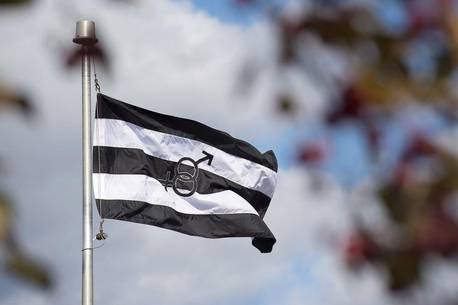
Facts: Sexuality isn’t absolute. Gender isn’t binary. They are both fluid and gradient.
Everyone has the right to identify and express themselves in whichever manner they please. Yet there are still a few people in the world, “few” being a gross understatement, who can’t seem to respect that. Homophobia is a concerning issue, and it can be further fueled by a person’s fear of standing up against it. People shy away from even having conversations about the issue as if supporting homosexuality would somehow make them gay by association. They discourage the mere mention of homosexuality as if it’s some sort of a taboo!
But what if things were the other way around? Imagine a society where people are criticised for being straight. And yes, I’m aware that in most eastern conservative cultures, displaying sexual fantasies or desires of any sort have always been frowned upon. So, it would seem that being overtly straight would be considered taboo as well. (This is evident from all the anti-PDA rants on the Facebook confessions page.) But let’s imagine a society where being gay is the norm and being straight is frowned upon…this is, in essence, the fantasy of every gay kid in the closet ever.
Here’s a short story to give you a glimpse of what could happen:
In the far distant future, humanity won over climate change and energy struggles. Now the biggest problem they faced was overpopulation. This led to a gradual shift in people’s mindsets about reproduction. The “hum do humare do” policy was reformed to one and then eventually to zero.
People started to criticise straight sex, and heterosexuals were shamed for having perverse sexual preferences which were a threat to society. (If you dare argue that they could just use protection, I double dare you to find a logical reason for shaming homosexual sex.) As a result, the LGBTQ+ community gradually gained more and more political power, and straight sex was eventually made illegal. New babies could only be 5D printed when someone died so the balance was maintained.
Heterosexuals eventually became a minority.
Simon was born into this future and struggled through childhood because his way of dressing and behaving wasn’t popular among the other kids. He was always the centre of everyone’s destructive criticism.
As a result, Simon was subjected to a lot of bullying on a regular basis. He got called a freak and an attention whore and was often pressured to do ballet (which he did not care for). When he tried to play sports, he’d become the butt of jokes like, “What’s the hardest part about being the captain of a rugby team? Telling your parents that you’re straight!”. Girls wouldn’t go near him, because they were afraid he’d be attracted to them or worse, people would tease them, calling them straight by association too.
At around 13 years of age, Simon started to truly understand that he was different from the rest of the boys. At 16, Simon had his first crush on a girl. Now being a straight man, he was filled with the confidence that she wanted him too. So, the plan was to keep writing her love letters (not exactly a very straight thing to do, I know) and not take no for an answer. Tired of being hit on relentlessly, she complained about this to the principal, and then to his parents.
“Was this some kind of dare? Is it a prank? Honey, this is not funny. You could go to jail for this.” His dad said, his other dad nodding alongside him. Although they had always kind of suspected it was true, they kept their hunches to themselves and Simon had never enjoyed talking about his feelings anyway.
But Simon couldn’t run from the truth any longer. He finally grew the balls to come out to his fathers that day. “Dad, it wasn’t a joke. I like her, I… I like women and I’m straight, but I’m still the same person!”, he beseeched.
His parents didn’t take the news well. In fact, they couldn’t seem to take the news at all. The shock hit them so hard they went into denial. “Honey, you’re just confused. I know you’re a teenager, your body is changing, but this is just a phase. You’ll get over it.” His dad said, struggling to be compassionate.
“Exactly! You wouldn’t feel that way if you had a boyfriend, maybe you should stop hanging out with all those girls and try to find a boy.” His other dad joked. But when Simon only repeated himself, his parents started freaking out. “Sweetheart, I’m glad you opened up to us about this. I’m sorry I didn’t take you seriously at first, but now I understand. And I just want you to know there’s nothing wrong with you, you’re not weak. Having a mental illness does not make you a sinner. We will consult the best psychiatrist. If needed, we can also use the money we saved up for your college to afford hormonal therapy. We’ll register you for the straight conversion camp this summer right away.”
After that, most of the kids avoided him. The rest he tried hard his best to avoid himself. Getting beaten up and bullied sure was a pain in the ass, but the teachers siding against him felt worse, parents of his classmates didn’t want to send their children to the same school with ‘a perv’ and they would threaten to take matters to the police unless the school kicked him out. One day, the girl he had written the love letter for walked up to him.
“Simon, I know you must feel bad because of what happened, but I think heterosexuals are just like precious Christmas decorations!” He didn’t fully understand that compliment, but he immediately felt relieved and leaned over to hug her. “Because they should be hung on a tree and lighted up!”, she yelled. Simon felt as if the floor was slipping beneath his feet, he could not comprehend how someone could say something so cruel. And then he literally slipped and fell as the girl smacked him down. Wiping her hands off as if his touch agitated her, she said, “I hope that didn’t arouse you, you creep!”. Then she stepped over him and walked off as everyone pointed and laughed.
Simon felt powerless but he was physically unable to cry. He’d always end up aggressively punching the wall instead, in an attempt to feel in control again. The constant bullying was nothing new thing to him, he’d grown resilient to that throughout his childhood. But the fact that his parents were shamed in society was unbearable to him. He blamed himself for the disappointment he could sense in his fathers for the first time. He couldn’t see any other way to end this other than by taking his own life and would’ve gone through with it if Neha hadn’t talked him out of it. Neha was one of his only friends, but they only knew each other through Tumblr, where she ran a hetero pride blog that Simon followed.
India had never gotten around to accepting the section 733 of the new penal code (which declared heterosexuality as a criminal offence), not because the government was fair and sensitive, but because Indians showed the most inertia against accepting change. (Who said having an overly orthodox culture is always a bad thing for society, huh?) Neha was always there to console him and they slowly started to develop feelings for each other.
At age 18, Simon left home and ran away to India. He imagined he could finally live his truth once he got there. But he soon realised that the people there weren’t completely accepting towards heterosexuals/hets, they were just passive about oppressing them. Simon had to hide his sexuality to be able to get a job as a waiter in a hotel. The manager often asked him to deny straight couples a table, because they would apparently make the rest of the customers uncomfortable.
In their free time, Simon and Neha would join activist groups to fight for their rights and dignity. They would always have to sneak away to be together but a few years later, Neha gathered the courage to come out to her mothers. Who, on the bright side, didn’t freak out. They didn’t abandon her, kill her in the name of honour, or abuse her. They stayed calm and dealt with the situation in the most Indian way possible…. They arranged her marriage with the daughter of a family friend to save face.
Simon moved on and continued to fight for his cause. Every day he would face hate mail and death threats, people yelling heterophobic slogans like “don’t be straight, or you’ll go straight to hell” and “castrate the straights” to his face. People would post #hatethehets on social media. Nobody would listen to what Simon had to say. People shamed the straights, claiming that being straight was just an excuse made by sore losers, who were too ugly to find a gay partner. But Simon persevered, and he formed an organisation called the “SUPER HAPPY FUN INDIA” (I’m not kidding, this is an actual thing, google it). He kept holding protests and demonstrations. Over the years, more and more people dared to come out and join the cause. They taught the people that love is love and that #straightrightsarehumanrights. They explained that they were born this way. Simon held the first-ever …wait sorry, second-ever (we’ve already witnessed the first one last year, *facepalms*) straight pride parade, near the hotel he used to work at. But people resisted him with posters reading “Simon go back.” People made fun of the straight pride flag (which was just vertical black and white lines as a contrast to the rainbow), by comparing it to jail bars, saying that’s where the hets belonged. In the end, Simon did win equal rights for heterosexuals, but not everything changed. Heterosexuals still didn’t get enough representation in the government. They didn’t have job security. The gays would still openly discriminate against them. Public display of straight love was either condemned or was sexually objectified by lesbians. Consequently, straight kissing scenes in movies were still censored to a greater degree than gore was.
Gay people would hit on straight people in bars and claim that they could “turn them gay” if they agreed to be with them for a night.
Straight couples couldn’t adopt children because the government had ruled that having parents of two different genders cultivated a volatile home environment and thus unfit to raise a child. A kid should either have only fathers or only mothers. It took Simon four long decades for straight weddings to finally be made legal. And even after all those years, Neha could only truly love Simon. She divorced her wife and married Simon, and they knew they’d live happily ever after. But they sadly couldn’t get a wedding cake from the town’s most popular bakery because the owner still didn’t believe in straight marriages and could evidently deny customers service for no good reason.
This story may sound fictitious, and yet it doesn’t even compare to how unfair present society is to people who aren’t cisgender heterosexuals. For example, it doesn’t even begin to cover the issues faced by the (bi/pan/a)sexuals. The existence of their orientation hasn’t been properly acknowledged to this day. It doesn’t say anything about transgender or non-binary people. But the main takeaway here is to stop perceiving the LGBTQ+ community as freaks, to educate ourselves about the issues they face and support them. And for those who complain about “straight pride” not being a thing, just be grateful that it hasn’t come to that yet.
If we can’t shape society such that gay people don’t have to come out, then it should be our responsibility to at least ensure that anyone willing to come out doesn’t feel too insecure to live their truth. If more people learn to grow out of that binary mindset and are more willing to accept everyone’s differences, we can have a more colourful society, where no one would ever feel like being themselves is a taboo.
Editor: Sravani Boinapelli
Designer: Rohan Lahane


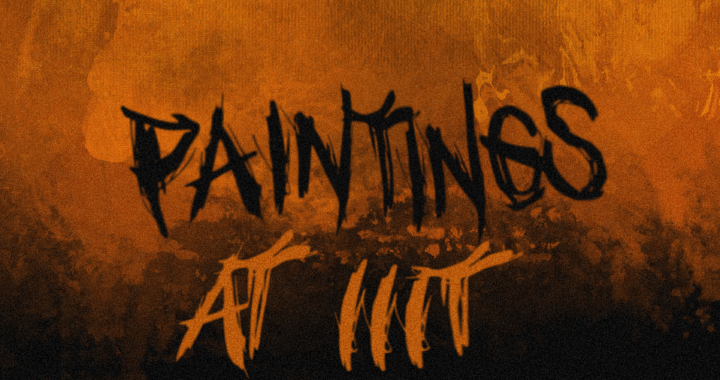 Paintings of IIIT
Paintings of IIIT 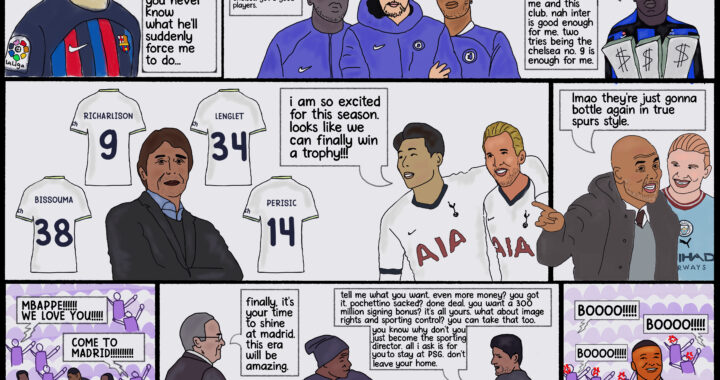 Football: The 2022/23 Pre-Season Saga Illustrated
Football: The 2022/23 Pre-Season Saga Illustrated 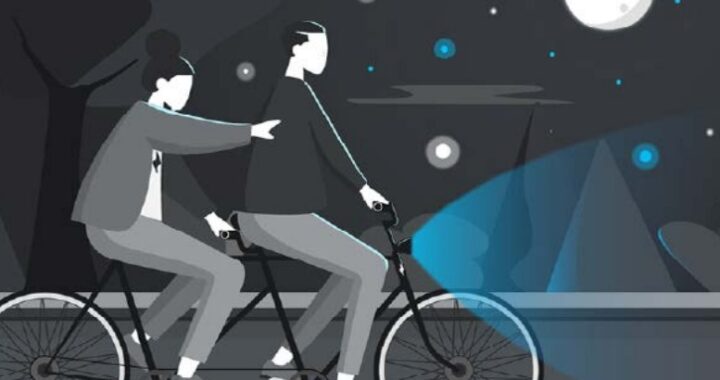 What If Online Was The Norm
What If Online Was The Norm  Not For Long
Not For Long 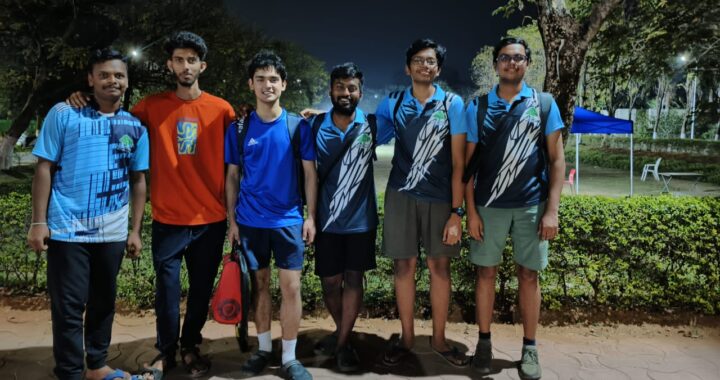 A perspective on sports in IIIT
A perspective on sports in IIIT 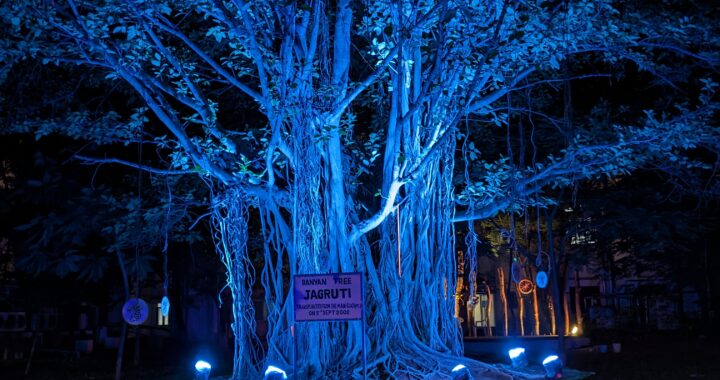 The Tale of Jagruti
The Tale of Jagruti  Cleaning up the Mess?
Cleaning up the Mess?
Great article! Liked it a lot. Only complain that I have is the story in itself was great and the last added message of the story not only limits its scope, but also makes the rest of the story forceful.